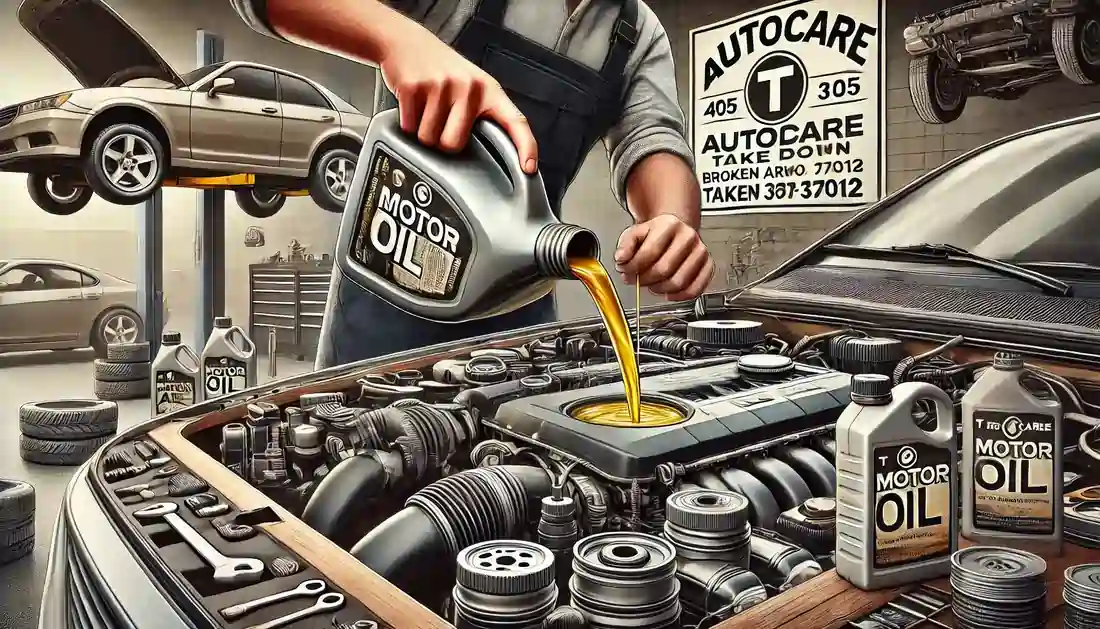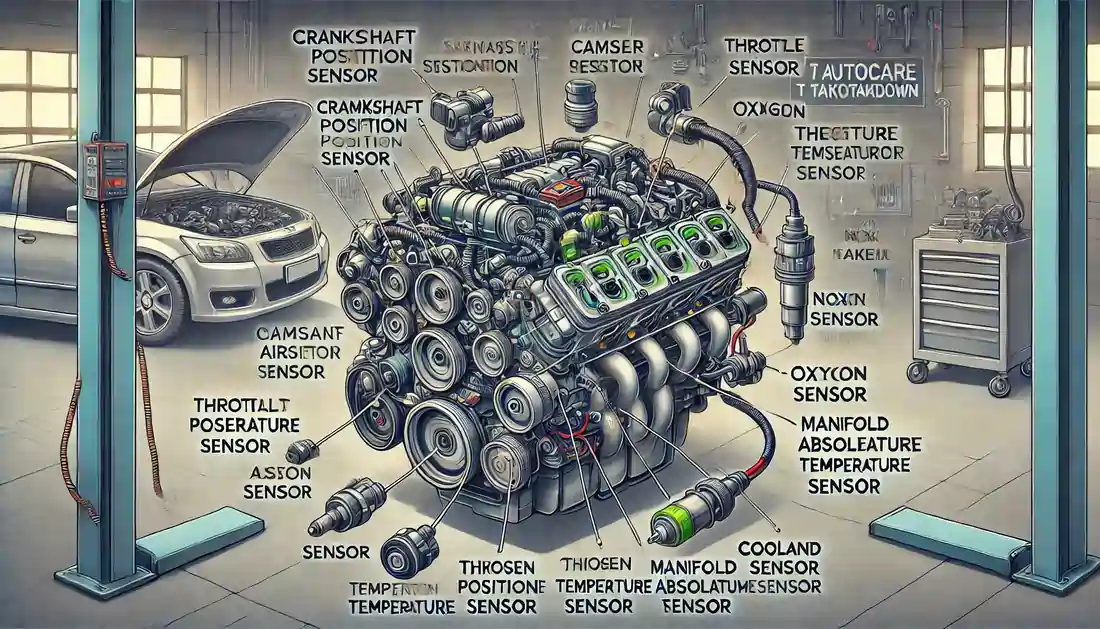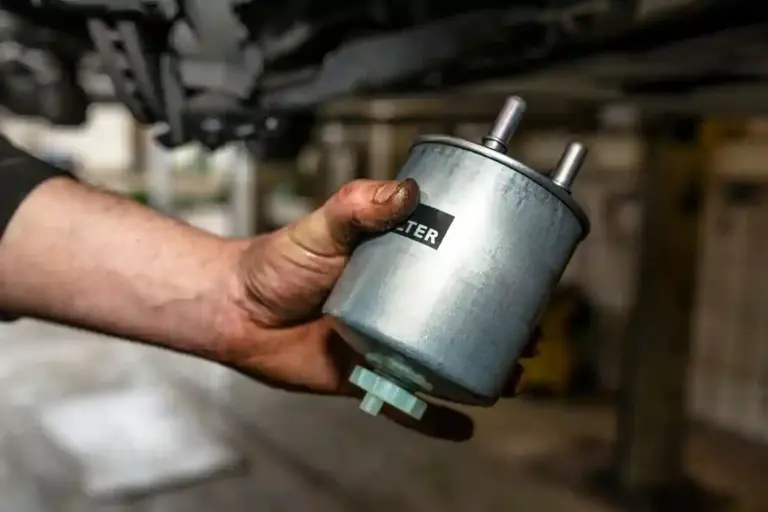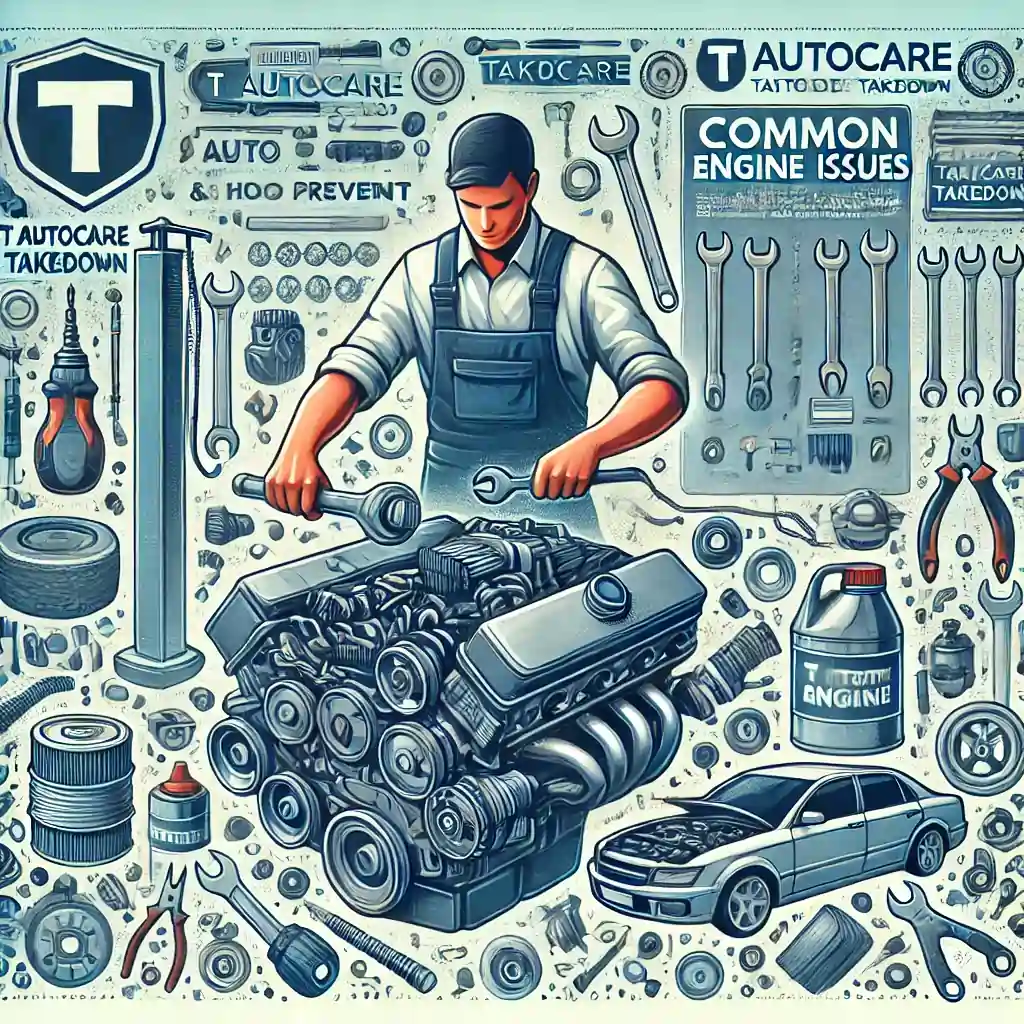Fuel additives play a crucial role in maintaining and enhancing your vehicle’s performance.
Whether you want to improve fuel efficiency, clean your engine, or protect your fuel system, choosing the right fuel additive can make a significant difference.
At T Autocare Takedown in Broken Arrow, OK, we are committed to providing top-notch auto repair and maintenance services. This guide will help you understand the different types of fuel additives, their benefits, and how to use them effectively.
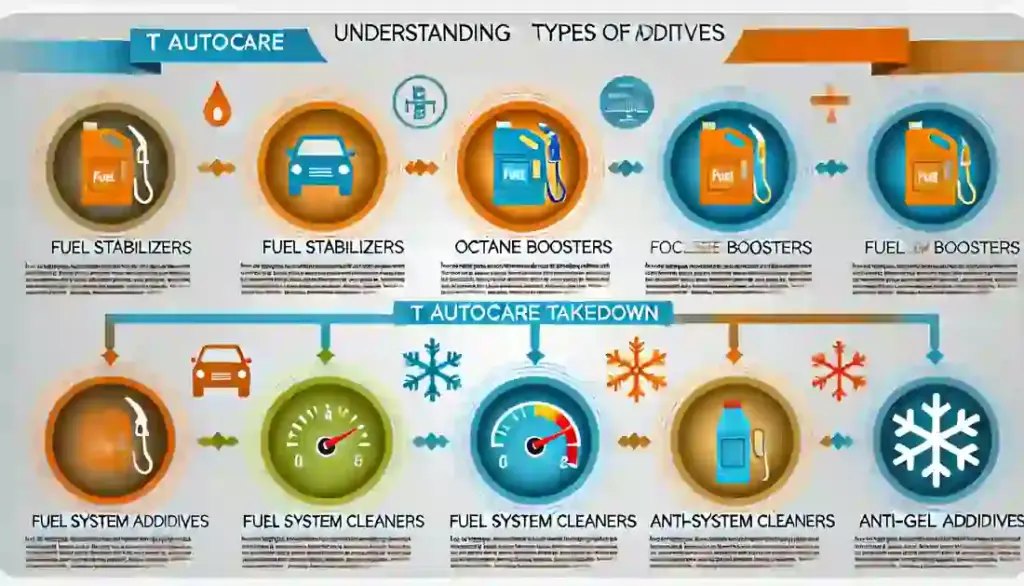
When using fuel additives, it’s important to also consider the overall maintenance of your vehicle. Regular use of additives can help improve fuel efficiency and engine performance, but staying on top of general maintenance is key to preventing costly repairs. For more tips on how to budget for vehicle upkeep, check out our guide on how to save money on car repairs.
What Are Fuel Additives?

Fuel additives are substances designed to improve the quality and performance of the fuel used in your vehicle.
They work by cleaning, protecting, and enhancing various components of the fuel system, including the engine, fuel injectors, and fuel lines.
By using fuel additives, you can ensure that your car runs more efficiently and stays in good condition for longer. For a thorough evaluation of your fuel system, consider scheduling a fuel system inspection to identify any underlying issues and maintain optimal performance.
Using fuel additives regularly can also lower harmful emissions by helping your engine burn fuel more cleanly.
This is good for both your car and the environment. Some additives help clear carbon buildup, which can stop engine knocking and improve gas mileage. To learn more about how regular emission testing can benefit your vehicle and the environment, check out our article on the benefits of regular emission testing for vehicles.
Whether you want to deal with low-quality fuel or boost your car’s performance, fuel additives can help your engine last longer.
They are an easy and low-cost way to keep your engine running well, especially for older cars or those used in tough conditions.
Be sure to choose the right additive for your car, as not all work the same on every engine.
Types of Fuel Additives
Understanding the different types of fuel additives available can help you choose the right one for your vehicle. Here are some of the most common types:
Fuel Injector Cleaners
Fuel injector cleaners offer a simple way to improve your car’s performance.
Over time, dirt and carbon can clog fuel injectors. This makes your engine less efficient. A fuel injector cleaner removes these deposits. It helps fuel flow smoothly. This improves fuel efficiency and makes your engine run better. It also reduces emissions.
Using fuel injector cleaners can extend your engine’s life and save you money on repairs.
Fuel System Cleaners
Fuel system cleaners do more than just clean the injectors. They clean the entire fuel system, including the fuel lines. By removing deposits and contaminants, they help keep your engine running smoothly.
This can improve performance, fuel efficiency, and reduce the risk of future issues. Regular use of fuel system cleaners can also extend the life of your engine.
Octane Boosters
Octane boosters raise the octane level of gasoline. This can improve engine performance and reduce engine knock, especially in high-performance vehicles. By using octane boosters, your engine runs more smoothly and efficiently, which can enhance your driving experience.
Fuel Stabilizers
Fuel stabilizers are important for vehicles that sit unused for long periods. They help keep the fuel from breaking down and forming deposits. This prevents issues like clogged fuel lines and ensures your engine starts smoothly when you’re ready to use the vehicle again.
Cetane Boosters
Cetane boosters raise the cetane level of diesel fuel. This improves combustion and makes cold starting easier. By using cetane boosters, your diesel engine runs more efficiently and performs better in cold weather.
Anti-Gel Additives
Anti-gel additives stop diesel fuel from thickening in cold weather. This helps keep your engine running smoothly, even in freezing temperatures. By using anti-gel additives, you can avoid fuel-related issues and ensure reliable operation in the winter months.
Corrosion Inhibitors
Corrosion inhibitors shield the fuel system from rust and corrosion. This protection is especially important in humid or coastal areas, where moisture can cause damage over time. Using corrosion inhibitors helps extend the life of your fuel system and ensures your vehicle runs smoothly, even in challenging environments.
Ethanol Additives
Ethanol additives help protect your engine from the negative effects of ethanol in gasoline. They reduce moisture absorption, which can cause issues in the fuel system. These additives also prevent corrosion, keeping your engine parts in better condition for longer. By using ethanol additives, you can maintain engine performance and avoid costly repairs.
Fuel Pills
uel pills offer an easy and mess-free way to boost your fuel. They help improve fuel efficiency, increase engine power, and lower emissions. By simply adding a pill to your fuel tank, you can enjoy better performance while also reducing your vehicle’s environmental impact.
How to Choose the Right Fuel Additive
Choosing the right fuel additive depends on several factors, including the type of vehicle, driving conditions, and fuel type. Here are some tips to help you make the best choice:
Type of Vehicle: Different vehicles have different needs. High-performance cars might benefit from octane boosters, while diesel engines might need cetane boosters.
Driving Conditions: Consider your driving conditions. If you often drive in cold weather, anti-gel additives might be necessary.
Fuel Type: Make sure the additive is compatible with your fuel type, whether it’s gasoline or diesel.
For personalized recommendations, consult with a mechanic or auto technician at T Autocare Takedown.
Benefits of Using Fuel Additives
Using fuel additives offers several benefits that contribute to better vehicle performance and longevity. Here are some of the key advantages:
Improved Fuel Efficiency
Fuel additives can help improve your vehicle’s fuel efficiency by cleaning the fuel system and ensuring better fuel combustion.
Enhanced Engine Performance
By keeping the fuel system clean and preventing deposits, fuel additives can enhance engine performance, leading to smoother operation and increased power.
Reduced Emissions
Using fuel additives can help reduce emissions by ensuring more complete fuel combustion and keeping the engine clean.
Prolonged Engine Life
Regular use of fuel additives can prevent wear and tear on engine components, prolonging the life of your engine and reducing the need for major repairs.
Prevention of Fuel System Issues
Fuel additives can prevent common fuel system issues such as clogged injectors, fuel line deposits, and corrosion, keeping your vehicle running smoothly.
Common Myths About Fuel Additives
There are several myths about fuel additives that can lead to misconceptions. Here are some common myths and the truths behind them:
Myth: Additives are unnecessary if you use high-quality fuel.
Truth: Even high-quality fuel can benefit from additives, especially for specific needs like cleaning or performance enhancement.
Myth: All fuel additives are the same.
Truth: Different additives serve different purposes, and it’s important to choose the right one for your specific needs.
Myth: Additives can fix all engine problems.
Truth: While additives can improve performance and prevent issues, they are not a substitute for proper maintenance and repairs.
How to Use Fuel Additives
Using fuel additives correctly is important to ensure their effectiveness. Here is a step-by-step guide:
Choose the Right Additive: Select the additive that best suits your vehicle’s needs.
Read the Instructions: Carefully read the instructions on the additive bottle to understand the correct dosage and usage.
Add to Fuel Tank: Pour the additive into the fuel tank before filling up with fuel. This ensures proper mixing with the fuel.
Frequency of Use: Follow the recommended frequency of use, whether it’s with every fill-up or at specific intervals.
Unique and Innovative Ideas
Exploring new and advanced fuel additive technologies can offer additional benefits. Eco-friendly fuel additives are gaining popularity for their reduced environmental impact. Additionally, fuel additives with advanced formulations can provide better performance and protection.
Customer testimonials and case studies can also provide valuable insights into the benefits of using specific fuel additives. At T Autocare Takedown, we stay updated on the latest advancements to offer our customers the best solutions for their vehicles.
Conclusion
Understanding and using the right fuel additives can significantly enhance your vehicle’s performance and longevity. By keeping the fuel system clean, improving fuel efficiency, and preventing common issues, fuel additives play a vital role in car maintenance. For expert advice and personalized recommendations, consult with T Autocare Takedown in Broken Arrow, OK. Our team of experienced Broken Arrow mechanics and auto technicians is here to help you with all your auto repair and maintenance needs.
A Comprehensive Guide to Fuel Additives: What Are They, How They Work, and Should You Use Them? (vehicleanswers.com)
For more information on fuel additives and their benefits, or to schedule a service appointment, visit T Autocare Takedown. Our comprehensive range of services includes oil changes, engine repair, fuel pump replacement, and more. Contact us today to keep your vehicle running at its best.



